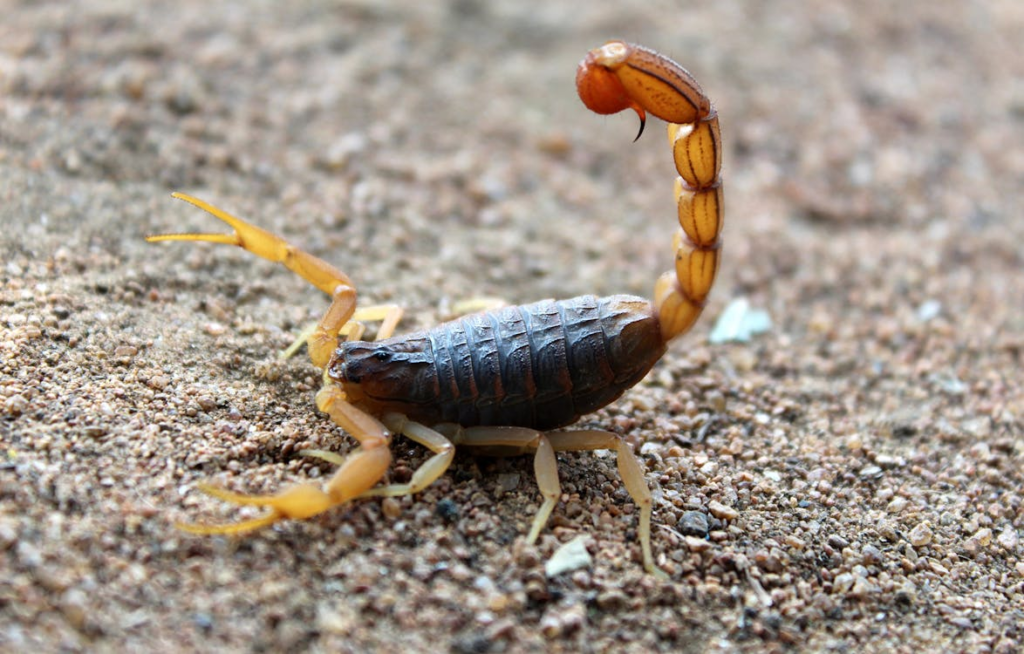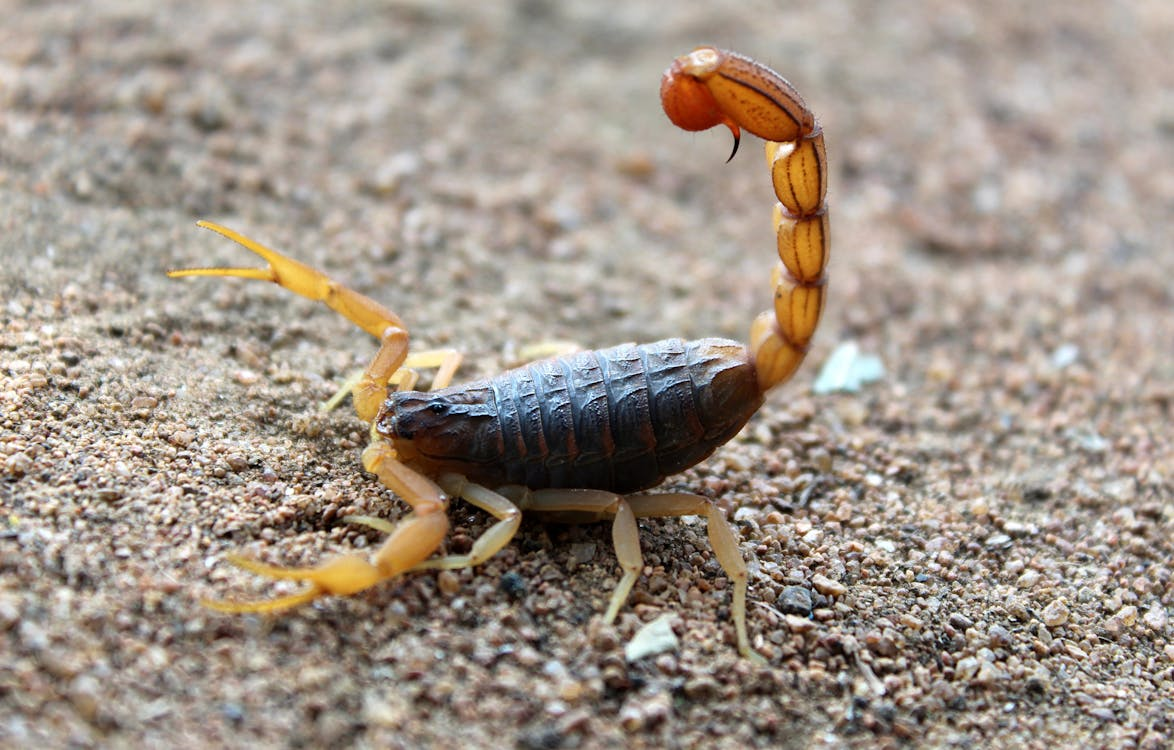Arizona’s unique desert climate is home to a variety of pests that can invade homes and cause significant discomfort or even damage. Understanding which pests are most common in the area and how to prevent them is key to maintaining a safe and comfortable living environment. Here’s a look at the top 10 most common pests in Arizona and effective strategies to keep them at bay.

Content
1. Scorpions
Why They’re a Problem: Scorpions are one of Arizona’s most feared pests due to their painful stings, which can be particularly dangerous for young children and the elderly.
How to Prevent Them:
- Seal Entry Points: Make sure to seal cracks and gaps around doors, windows, and foundations to prevent scorpions from entering your home.
- Remove Debris: Keep your yard clear of wood piles, rocks, and other debris where scorpions like to hide.
- Use Scorpion-Specific Pesticides: Consider applying pesticides specifically designed to target scorpions, especially around the perimeter of your home.
2. Ants
Why They’re a Problem: Ants are notorious for invading homes in search of food. Some species, like carpenter ants, can even damage wooden structures.
How to Prevent Them:
- Keep Surfaces Clean: Wipe down countertops, sweep floors, and store food in sealed containers to eliminate potential food sources.
- Seal Cracks: Ants can enter through the smallest of cracks, so be diligent about sealing any gaps in your home’s exterior.
- Regular Pest Control: Consider regular pest control treatments to keep ant populations under control, especially during the warmer months.
3. Cockroaches
Why They’re a Problem: Cockroaches are not only unsightly but can also spread diseases and trigger allergies, particularly in children.
How to Prevent Them:
- Eliminate Moisture: Fix any leaks and reduce humidity in your home, as cockroaches are attracted to moisture.
- Keep a Clean Kitchen: Ensure your kitchen is clean and free of crumbs and food debris, as these are prime attractants for cockroaches.
- Seal Entry Points: Cockroaches can squeeze through tiny gaps, so seal all potential entry points, including around pipes and vents.
4. Termites
Why They’re a Problem: Termites cause millions of dollars in damage each year by feeding on the wood in homes, compromising structural integrity.
How to Prevent Them:
- Reduce Wood-to-Soil Contact: Keep wooden structures, such as decks and fences, elevated and away from the soil to reduce termite access.
- Fix Leaks: Termites are attracted to moisture, so repair any leaks in your home’s plumbing or roof.
- Regular Inspections: Schedule regular termite inspections with a pest control professional to catch any infestations early.
5. Spiders
Why They’re a Problem: While most spiders in Arizona are harmless, some species, like the black widow and brown recluse, can deliver venomous bites that require medical attention.
How to Prevent Them:
- Declutter Your Home: Spiders thrive in undisturbed areas, so keep your home free of clutter, particularly in basements, attics, and garages.
- Seal Gaps and Cracks: Prevent spiders from entering your home by sealing gaps around doors, windows, and foundations.
- Remove Webs: Regularly sweep away spider webs to discourage them from settling in your home.
6. Rodents
Why They’re a Problem: Rodents like mice and rats can cause significant damage by gnawing on wires, insulation, and food supplies. They also carry diseases that can be harmful to humans.
How to Prevent Them:
- Seal Entry Points: Inspect your home for potential entry points and seal them, particularly around pipes, vents, and foundations.
- Keep Food Stored Properly: Store food in airtight containers and ensure that trash is securely covered to prevent attracting rodents.
- Eliminate Hiding Spots: Keep your yard and home free of clutter where rodents might build nests, such as woodpiles, boxes, and overgrown vegetation.
7. Mosquitoes
Why They’re a Problem: Mosquitoes are not just a nuisance; they can also carry diseases like West Nile virus and Zika virus, making them a significant health risk.
How to Prevent Them:
- Eliminate Standing Water: Mosquitoes breed in standing water, so regularly empty any containers or areas where water collects, such as birdbaths, gutters, and plant saucers.
- Use Insect Repellents: Apply insect repellent when spending time outdoors, particularly during dusk and dawn when mosquitoes are most active.
- Install Screens: Make sure windows and doors are fitted with screens to keep mosquitoes out of your home.
8. Crickets
Why They’re a Problem: While crickets are generally harmless, their incessant chirping can be a major annoyance, and they can attract other predators, like scorpions.
How to Prevent Them:
- Reduce Moisture: Crickets are attracted to moist areas, so fix any leaks and reduce humidity in your home.
- Seal Entry Points: Keep crickets out by sealing cracks and gaps around doors, windows, and foundations.
- Use Yellow Outdoor Lights: Consider using yellow or sodium vapor lights outside, which are less attractive to crickets than traditional white lights.
9. Bed Bugs
Why They’re a Problem: Bed bugs are tiny, elusive pests that feed on human blood, leading to itchy bites and sleepless nights. They can be challenging to eliminate once they’ve infested a home.
How to Prevent Them:
- Inspect Secondhand Items: Before bringing secondhand furniture or clothing into your home, inspect them thoroughly for signs of bed bugs.
- Use Protective Covers: Encase mattresses and box springs in bed bug-proof covers to prevent infestations.
- Regularly Wash Bedding: Wash your bedding in hot water regularly and dry it on high heat to kill any bed bugs or eggs.
10. Wasps
Why They’re a Problem: Wasps can be aggressive, especially if their nests are disturbed. Their stings can be painful and potentially dangerous, particularly for those who are allergic.
How to Prevent Them:
- Remove Nests Early: Check for wasp nests around your home in early spring and remove them before they become large.
- Cover Trash Cans: Wasps are attracted to food, so keep trash cans tightly covered and clean up any spills or food debris outside.
- Avoid Bright Colors: When spending time outdoors, avoid wearing bright colors and floral patterns, which can attract wasps.
Conclusion
Dealing with pests is an inevitable part of living in Arizona, but with the right preventive measures, you can significantly reduce their impact on your home. Regular maintenance, sealing entry points, and keeping your home clean are key strategies in keeping these common pests at bay. If you’re facing a persistent pest problem, it’s always a good idea to consult with a professional pest control service to ensure your home remains safe and comfortable year-round.

My name is Author Name. I post about home improvement ideas and how to make your home look beautiful and liveable. I hope my posts will help you with your DIY projects!


